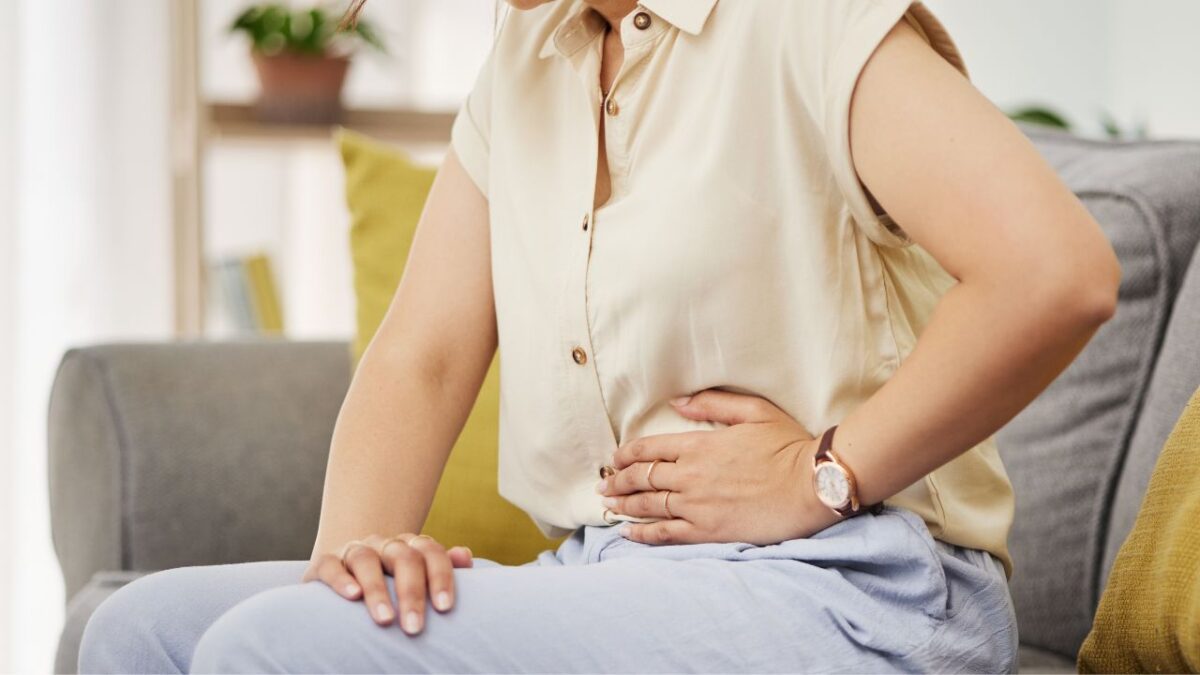How to Get Rid of Bloating After Thanksgiving Indulgence

Thanksgiving, with its delightful spread and festive cheer, often leaves us with fond memories and, sometimes, an uncomfortable reminder in the form of bloating. This is particularly true for women going through menopause, where hormonal fluctuations can disrupt the digestive system, leading to increased gas and water retention. But fear not, as there are several strategies on how to get rid of bloating post-Thanksgiving effectively.
Understanding the connection between menopause and bloating is crucial. The decrease in estrogen during menopause can often lead to digestive issues, and when combined with the indulgence of Thanksgiving, it can exacerbate the feeling of bloating. However, with some dietary adjustments, you can ease back into comfort. Incorporating high-fiber foods like fruits, vegetables, and whole grains can regulate your digestive system and reduce bloating. Staying hydrated is also key, as it helps flush out excess sodium, a common cause of water retention. Cutting back on salty and sugary foods is beneficial, as they contribute to bloating. Additionally, including probiotics in your diet, found in foods like yogurt and kefir, can maintain a healthy gut.
Exercise might not be high on your priority list after a big Thanksgiving meal, but it’s incredibly beneficial, especially during menopause. A gentle walk or some light yoga can stimulate your digestive system and help relieve bloating. It’s also a great way to de-stress, which can indirectly help with bloating.
Herbal remedies and supplements can offer relief too. Peppermint tea, known for its digestive benefits, can soothe your stomach.
Peppermint Tea

Making peppermint tea is a simple and refreshing process. Here’s a straightforward guide to help you brew a perfect cup:
Ingredients
- Fresh or dried peppermint leaves (1 tablespoon if fresh, 1 teaspoon if dried)
- Boiling water (approximately 1 cup)
- Optional: honey or sugar for sweetness
Instructions
- Prepare the Peppermint Leaves:
- If using fresh peppermint leaves, gently rinse them under cold water.
- If using dried leaves, measure out about a teaspoon.
- Boil Water:
- Heat water until it reaches a rolling boil. For the best flavor, use filtered water.
- Steep the Leaves:
- Place the peppermint leaves in a tea infuser or directly into a cup.
- Pour the boiling water over the leaves.
- Let the leaves steep in the water for about 5-10 minutes. The longer you steep, the stronger the flavor will be.
- Remove the Leaves:
- If you used a tea infuser, remove it from the cup.
- If the leaves were placed directly in the cup, you can strain them out or leave them in for a stronger taste.
- Add Sweeteners (Optional):
- If you like your tea sweet, add honey or sugar to taste.
- Serve:
- Enjoy your peppermint tea while it’s warm.
Tips
- Fresh vs. Dried: Fresh peppermint leaves often yield a more vibrant flavor, but dried leaves are more convenient and have a longer shelf life.
- Intensity: Adjust the amount of peppermint and steeping time according to your taste preference.
- Health Benefits: Peppermint tea is known for its digestive benefits and soothing properties.
Enjoy your homemade peppermint tea!
Ginger, either as tea or in meals, is another excellent natural remedy for bloating. If constipation is contributing to your bloating, magnesium supplements can help regulate bowel movements.
The way you eat also plays a role. Eating slowly and chewing your food thoroughly can prevent swallowing air, which leads to bloating. Smaller, more frequent meals are easier on your digestive system than large ones.

Stress can exacerbate menopause symptoms, including bloating, so finding stress management techniques like deep breathing or meditation can be beneficial.
As you navigate menopause, you might notice changes in how your body reacts to certain foods. Paying attention to your body’s response after eating dairy, gluten, or other common allergens is important. If you notice increased bloating, it’s worth discussing with a healthcare provider.
Don’t underestimate the power of a good night’s sleep. Lack of sleep can disrupt the hormones regulating your digestive system, leading to bloating. Aim for 7-9 hours of quality sleep each night. Your clothing choices can also impact how you feel. Tight, restrictive clothing can make bloating feel worse, so opt for comfortable, loose-fitting outfits.
While staying hydrated is crucial, be mindful of what you drink. Carbonated beverages can increase bloating, so stick to still water or herbal teas. Regular health check-ups are important, too. Persistent or severe bloating should be checked by a healthcare provider, as it can be a sign of other underlying health issues.
Creating a support system can provide you with valuable tips and emotional support. Talking about menopause and its symptoms, like bloating, can sometimes feel taboo, but having people to share with can be incredibly helpful.
Remember, managing menopause symptoms like bloating is a journey. Be patient with your body as it navigates these changes. Celebrate the small victories, like feeling a little less bloated one day, and know that you’re not alone in this.
Incorporating natural diuretics like green tea, cucumber, and asparagus into your diet post-Thanksgiving can help alleviate bloating. Identifying and avoiding foods that trigger your bloating is also crucial. Keeping a food diary can help you track which foods might be causing discomfort. Regular bowel movements are key in preventing bloating, and experimenting with reducing portion sizes can also be helpful.
A gentle detox post-Thanksgiving, focusing on whole, unprocessed foods, can help reset your system. In some cases, hormone therapy can help manage menopause symptoms, including bloating, but this is something to discuss with your healthcare provider.
As we wrap up our discussion on bloating and menopause, it’s important to remember that menopause is a unique journey for every woman. The strategies we’ve explored to manage bloating and other discomforts post-Thanksgiving are not one-size-fits-all solutions, but rather starting points to help you find what works best for your body.
As you navigate the post-Thanksgiving period and the broader journey of menopause, keep in mind that you’re not alone. Many women are going through similar experiences, and sharing your story can be both empowering and comforting. Don’t hesitate to seek advice from healthcare professionals if your symptoms are persistent or concerning.
In conclusion, menopause is a natural, albeit sometimes challenging, phase of life. But with the right approach, it can also be a time of growth, discovery, and renewed focus on self-care. So, embrace this journey with optimism, equip yourself with knowledge, and remember that taking care of your body and mind during menopause is not just about managing symptoms—it’s about celebrating and enjoying all the stages of your life, Thanksgiving feasts included!
